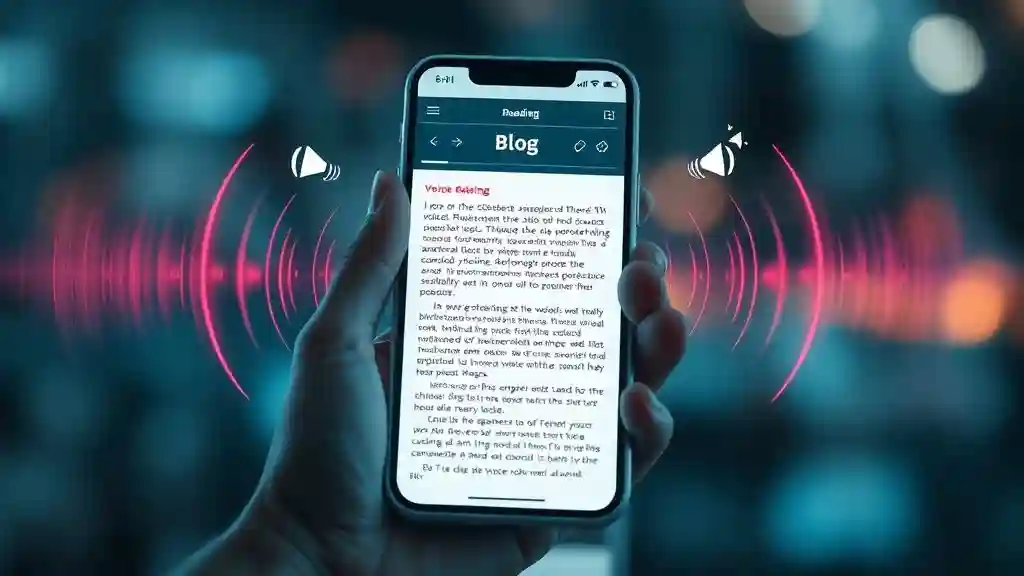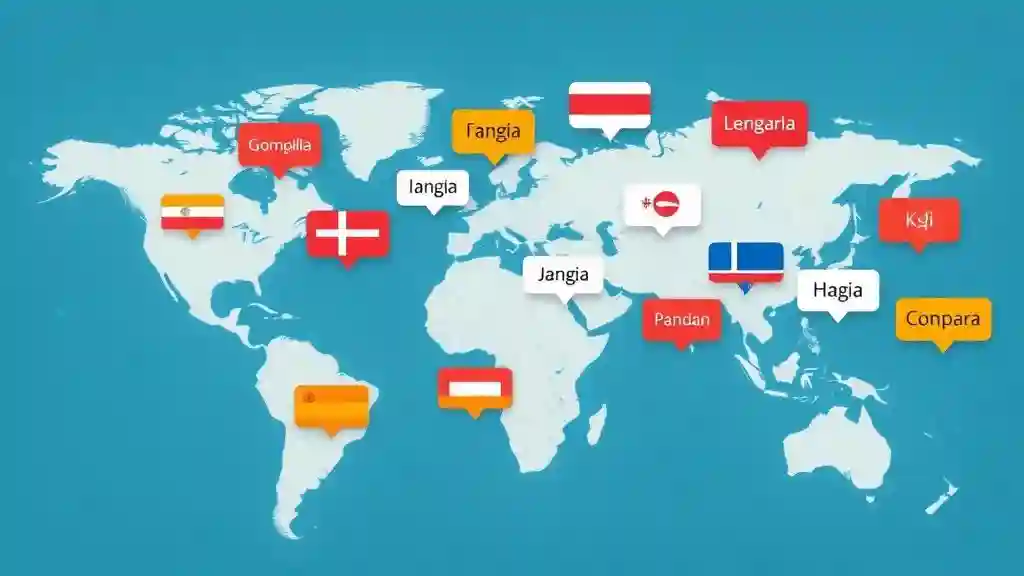
AI Text-to-Speech: The 2025 Ultimate Guide
Imagine scrolling through your favorite blog while your phone reads it out to you in a voice so human, you can’t tell it’s AI. That’s not sci-fi anymore—it’s 2025, and AI voices have leaped into hyper-realism. From multilingual support to real-time voice cloning, the AI text-to-speech converter is changing how we work, learn, and even socialize online.
Whether you’re a content creator, educator, business leader, or accessibility advocate, this guide will take you through everything you need to know about AI TTS, backed by stats, trends, and actionable steps.
What Is an AI Text-to-Speech Converter?
But today’s AI TTS is more than robotic narration—it’s smart, emotional, and adaptive.
From Robotic to Realistic Voices

Gone are the days of monotone computer voices. Modern TTS engines mimic natural intonation, accents, and emotions. You can hear sadness, excitement, or emphasis—all generated by AI.
Key Features of Modern AI TTS
- Multilingual support: Speak 50+ languages with natural pronunciation.
- Custom voice cloning: Generate a voice that matches your brand or personal style.
- Real-time conversion: Perfect for live meetings, podcasts, or customer service.
- Emotion & tone control: Adjust the style for storytelling, professional narration, or casual chats.

Always test voices with different punctuation and emphasis—it drastically changes listener engagement.
Latest Trends & Stats (2024–2025)
The AI voice market is exploding. According to The Business Research Company, the AI voice generator market reached $3 billion in 2024, with a predicted CAGR of 37.1% to hit $20.4 billion by 2030.
Gen Z & Voice AI
- Rapid adoption: 73% of Gen Z prefer audio-based content for learning and entertainment.
- Social voice trends: Platforms like TikTok and Instagram Reels are experimenting with AI-generated voices for narration and storytelling.
Industry-Specific Applications
| Industry | Use Case Example |
| Business | Customer service automation, AI voice assistants, multilingual support |
| Education | Interactive eLearning, read-aloud lessons, accessibility for visually impaired |
| Healthcare | Conversational therapy bots, patient education, AI reminders |
| Entertainment | Audiobooks, podcasts, VR/AR experiences |
| Startups | Brand voice cloning for social media and marketing campaigns |

Which TTS use case excites you most? Business automation / eLearning / Healthcare bots / VR storytelling
Top 5 AI Text-to-Speech Platforms
Choosing the right AI TTS converter can feel overwhelming. Here’s a quick comparison of the top platforms in 2025:
| Platform | Voice Quality | Languages | Price | API Support |
| ElevenLabs | Hyper-realistic | 35+ | $$$ | Yes |
| Speechify | Natural & fast | 50+ | $$ | Yes |
| CogniSpark | Emotion adaptive | 25+ | $ | Limited |
| Play.ht | Brand voice cloning | 40+ | $$ | Yes |
| Resemble AI | Custom voice clones | 30+ | $$$ | Yes |
Don’t just pick a TTS tool based on price—test for emotion, clarity, and accent first.
How AI Text-to-Speech Works
Understanding the technology behind AI TTS converters will help you pick the right tool.
Neural Network Magic
They analyze text input and generate audio waveforms that mimic human speech patterns.
Real-Time Voice Cloning
This allows you to clone a voice in minutes. Businesses use it to create brand-specific audio content without hiring voice actors for every piece.
Emotion & Intonation Control
Some platforms let you fine-tune tone, speed, and pitch to match the content’s mood. For example:
- Slow, calm voice → meditation apps
- Energetic, fast voice → marketing promotions
Mini Case Study: A travel startup used an AI TTS converter to produce multilingual audio guides. Within six months, engagement soared 40%, and customer satisfaction increased by 25%.
Real-World Examples & Use Cases
The best way to grasp the power of AI TTS is through stories:
- Customer Support Automation
- A tech company replaced traditional IVRs with AI TTS voices. Result: call handling time dropped 30%, and customer feedback scores improved.
- Accessible eLearning
- An online education platform implemented TTS for visually impaired students. Completion rates for courses increased significantly.
- Therapy & Wellness Apps
- AI voice bots provide conversational therapy, offering support and check-ins for mental health users.
- VR & AR Experiences
- Game developers now integrate AI voices into immersive VR worlds, creating dynamic NPC dialogue in multiple languages.
If you’re experimenting with AI voices for social media or YouTube, always add a subtle background music layer to make it feel natural.
Step-by-Step Guide to Selecting the Best AI TTS Platform
Step 1 – Define Your Purpose
- Content type: Blog narration, eLearning, podcasts, accessibility, VR/AR.
- Audience needs: Language, accent, and emotional tone preferences.
- Budget: Free trials vs. paid plans; consider ROI.
Don’t pick the cheapest option—it may sound robotic or lack essential features.
Step 2 – Compare Platforms
| Feature | ElevenLabs | Speechify | CogniSpark |
| Voice Quality | Hyper-realistic | Natural & fast | Emotion adaptive |
| Languages | 35+ | 50+ | 25+ |
| Emotion Control | Yes | Limited | Yes |
| Pricing | $$$ | $$ | $ |
| API/Integration Support | Yes | Yes | Limited |
- Pro Tip: Test free trials with your actual content to evaluate voice realism, accents, and pacing.
Step 3 – Implement AI TTS in Your Workflow
- Blog & Articles – Convert written posts to audio to increase accessibility.
- eLearning Modules – Embed TTS narration for lessons and quizzes.
- Marketing & Social Media – Use voiceovers for video content or social posts.
- Customer Support – Automate routine responses with friendly AI voices.
Ensure your TTS platform allows easy updates, custom voices, and multiple language outputs.
Common Mistakes to Avoid
Avoid Robotic Voices
Generic TTS is boring. Always customize pitch, speed, and emphasis for human-like delivery.
Neglecting Accessibility
Don’t forget subtitles, screen readers, and multilingual support. Accessibility is not optional—it’s a must.
Ignoring Data Privacy
Some platforms store voice data. Always review privacy policies and compliance for sensitive content.
Overlooking Emotion
AI is powerful, but without tone adjustments, your narration may feel flat.
7-Day AI TTS Challenge
Want to master AI TTS in a week? Try this challenge:
Day 1: Test 3 platforms with short content.
Day 2: Customize voices for tone & emotion.
Day 3: Convert a blog post to audio and share internally.
Day 4: Add voice narration to a presentation or video.
Day 5: Experiment with multilingual output.
Day 6: Analyze listener engagement and feedback.
Day 7: Create a mini portfolio/audio snippet for social media.
Share your results in the comments or tag on social media. Community feedback accelerates learning.
The Future of Speech AI: What’s Next
Voice-as-a-Service
Expect AI TTS to become a subscription-based service for influencers, podcasters, and businesses—custom voices available instantly.
Emotion-Conscious AI
Next-gen AI will detect user mood and adjust tone dynamically. Imagine an AI tutor that senses frustration and softens its voice automatically.
AR/VR Voice Overlays

Gaming, virtual meetings, and immersive storytelling will increasingly rely on AI TTS to generate real-time dialogues.
FAQs: AI Text-to-Speech Safety, Privacy & Ethics
Will AI Voices Replace Human Jobs?
Not completely. AI handles repetitive narration, but creative and empathetic storytelling still needs humans.
Is My Voice Safe With Cloning?
Choose platforms with encryption and opt-in voice data usage. Avoid tools that automatically store your custom voice.
Can AI TTS Mislead People?
Yes, deepfake-like misuse is possible. Always label AI-generated content clearly to maintain trust.
Engagement Section: Polls & Community Interaction
- Poll: Which AI voice sounds most human to you?
- Reflection Prompt: Comment with your favorite TTS use case.
- Share Challenge: Post your AI voice experiment online and tag our blog.
These interactions increase dwell time, social sharing, and brand authority—Google loves it.
Conclusion: Empowering Content for All Audiences
The AI text-to-speech converter isn’t just a tool—it’s a cultural shift. From accessibility to marketing, learning, and entertainment, AI voices make content more inclusive, engaging, and versatile.
By choosing the right platform, implementing it smartly, and embracing ethical use, you can stay ahead of the curve in 2025 and beyond.
Remember: Test, customize, engage, and share—that’s how you turn AI TTS into a competitive advantage.
Written by A. R. Zada
A.R. Zada brings over a decade of experience in computer operations and is now focused on AI tools and prompt engineering. Through his website, zadaaitools.com, he shares real-world insights to help students, entrepreneurs, small business owners, and beginners embrace technology with confidence. His articles draw from personal experience and are intended for educational and informational purposes only.

Pingback: Best AI Text Detectors in 2025 (Top 5 Ranked) - zadaaitools.com